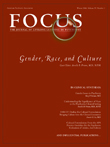Culture, Illness, and Care: Clinical Lessons From Anthropologic and Cross-Cultural Research
Abstract
Major health care problems such as patient dissatisfaction, inequity of access to care, and spiraling costs no longer seem amenable to traditional biomedical solutions. Concepts derived from anthropologic and cross-cultural research may provide an alternative framework for identifying issues that require resolution. A limited set of such concepts is described and illustrated, including a fundamental distinction between disease and illness, and the notion of the cultural construction of clinical reality. These social science concepts can be developed into clinical strategies with direct application in practice and teaching. One such strategy is outlined as an example of a clinical social science capable of translating concepts from cultural anthropology into clinical language for practical application. The implementation of this approach in medical teaching and practice requires more support, both curricular and financial.



